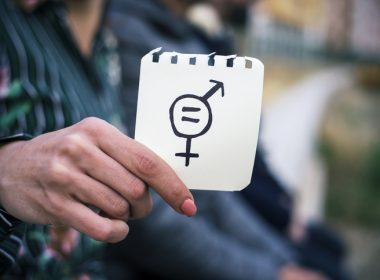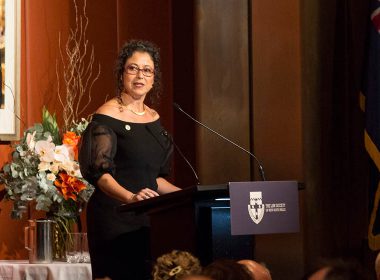Domestic violence victims are being forced to live out abusive and dangerous situations as they wait for their matters to be heard in Sydney’s overflowing courts, say lawyers campaigning for a new justice precinct to be built in south-west Sydney.
LSJ has heard how one terrified victim, a client of family lawyer and Law Society councillor Brett McGrath, endured an 18-month delay as an apprehended violence order (AVO) against her husband was being finalised.
Another victim, a mother of five from south-west Sydney, has publicly shared how she waited four years for justice to be served on her abusive husband. He was charged with 96 counts of sexual assault on the woman’s children – his step-daughters.
“I would organise my kids, take time off work, and spend three hours of my day getting to and from court – only to find that the hearing was put off for another six weeks,” Rachel (real name withheld) wrote in a compelling opinion editorial for The Sydney Morning Herald. “To get justice took me at least 30 weeks of my time over four years.”
Rachel, who is a small business owner struggling to pay her mortgage on a single income, shared her story as part of a community-led campaign calling on the state government to build a new court precinct in south-west Sydney.
The Southwest Sydney Justice Precinct campaign was launched by the Law Society of NSW in March and is backed by 12 other organisations and law societies including the Macarthur Regional Law Society, NSW Bar Association, Campbelltown City Council, NSW Police Association, and the Greater Sydney Commission. High-profile members of the NSW legal community including Law Society of NSW President Elizabeth Espinosa and former President of Macarthur Law Society Brett McGrath have thrown their weight behind the movement, hoping politicians would take a stand on the issue before the March election.
“The inadequacy of court resources in south-western Sydney has reached a tipping point,” said President Espinosa, speaking on behalf of the Law Society of NSW in March. “Three courts in the region, Camden, Campbelltown and Picton, are either at capacity or not equipped to manage the current backlogs in criminal and civil cases.”
Espinosa said the dramatic rate of population growth in the area meant a new court building was becoming increasingly urgent. Data from the Bureau of Crime Statistics and Research (BOCSAR) shows domestic violence-related assaults have increased by 45 per cent between April 2016 and March 2018, despite other crime categories experiencing a steady decline per capita.
“[South-west Sydney] is going to be a city the size of Adelaide, right next to Sydney’s second airport,” Espinosa said. “The current court system cannot cope with the demand now.”
Residents in south-west Sydney currently must travel to Wollongong, Parramatta or the Sydney CBD for divorce or parenting proceedings, as there is no closer sitting location for the Family Court of Australia. Criminal matters relating to domestic violence can be heard in Camden, Penrith or Campbelltown courts. But McGrath explained that dedicated domestic violence listing days in Camden are only held on two days every month. The court list has been known to schedule up to 100 matters on one day – an impossible number for the single judge and courtroom to plough through. The result for applicants is delay after delay.
“My clients are constantly asking, ‘Why is this taking so long? Why is it so expensive?’ All I can say is that this is the system,” said McGrath, who was the 2018 President of the Macarthur Law Society and is uniquely acquainted with the region’s justice demands.
“Just the other day, a magistrate in the Federal Circuit Court told me he is listing matters for 2023,” he added.
At least two in five assaults reported to police in 2017 were family or domestic violence-related, according to the Australian Bureau of Statistics (ABS). And the landmark Family, domestic and sexual violence in Australia 2018 report by the Australian Institute of Health and Welfare found that more than 110,000 men, women and children sought homelessness services in 2016-17 due to domestic violence.




